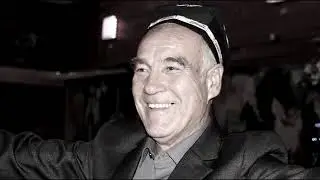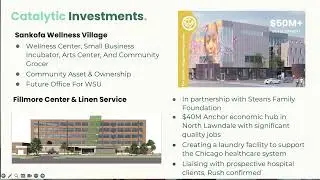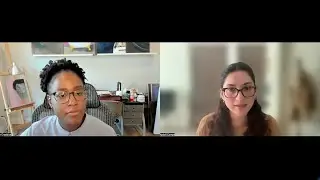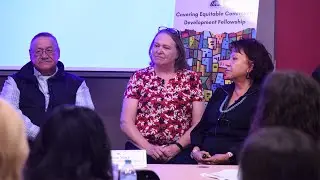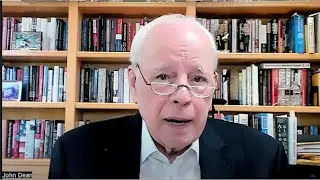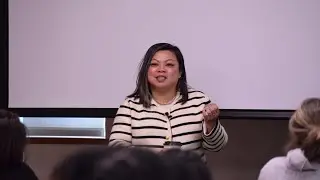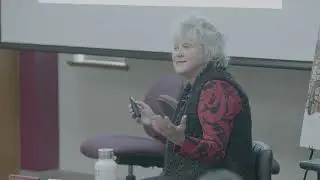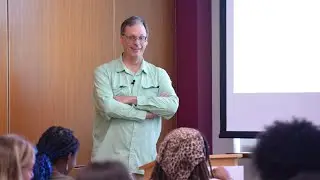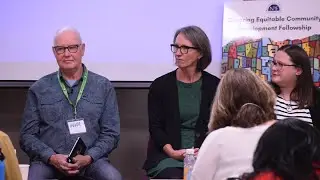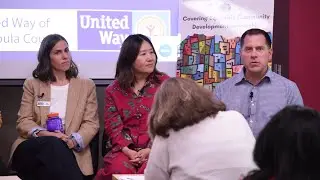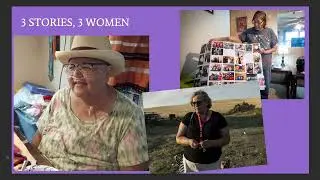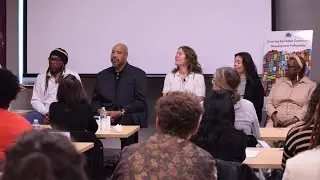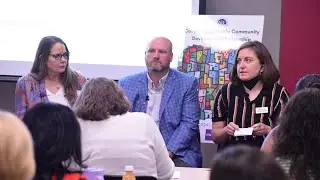Rebuilding New Orleans: Lessons from Hurricane Katrina’s Aftermath
What Can Reporters Covering the Aftermath of Milton and Helene Learn from New Orleans?
A community advocate talks about rebuilding efforts after Hurricane Katrina, particularly in Vietnamese American communities.
by Samantha Hooley, National Press Foundation
Hurricane Katrina was one of the most devastating climate events in New Orleans history, and many neighborhoods are still grappling with how it disrupted infrastructure and drained resources.
Tap Bui is the executive director of Sông Community Development Corporation, an organization that focuses on the Vietnamese-American experience and how to create racial equity and collaboration across sectors in New Orleans East. On October 9, she spoke with NPF Community Development fellows about how organizations like hers navigate the landscape following a catastrophic event.
Bui’s insights were especially timely, occurring as Hurricane Milton was about to make landfall and just weeks after the impact of Hurricane Helene.
Bui recalled that post-Katrina, members of the Vietnamese American community came together to rebuild, but policy analysts had other ideas for the area.
“There was a report that was put out by the Urban Land Institute that had recommendations on how to rebuild New Orleans, and they designated the entire New Orleans East as green space, so meaning, ‘Let’s designate this area to just an open public green space. Let’s sacrifice them to storm waters in case that another flood happens’ … not recognizing that there were communities, especially communities of color, that were already back and rebuilding.”
That was a tipping point for community advocates.
“The community had enough, right? … This is really the first time you saw cross-racial intergenerational community organizing in the Vietnamese community. So, it was really progressive for a very conservative community. And, they came out in waves. They had young folks talk about no landfills, how this is going to affect them, how it’s affecting all the different communities in the area. And, a few months later, they were able to successfully shut down the landfill.”
The following are key takeaways for journalists reporting on communities affected by natural disasters:
Takeaways:
1. Get to the root cause of issues
“When things like disasters happen, there’s a silver lining in that it connects us all and people can actually get to the root causes of issues versus what’s being politicized,” Bui said.
Speaking to residents is an effective way to identify persistent problems and concerns.
“It really has to come from them on what they want to see change, because that’s only then do they feel empowered to take initiative and to really take calls and address root issues,” Bui said.
When people have the necessary conversations about changes that need to be made in a community from a holistic perspective, it allows them to make informed decisions at the ballot box, according to Bui. She said the Vietnamese community generally votes conservatively, and that many of them have a deeply personal reason.
“They’re very patriotic, because they feel that they owe something to the U.S., post-Vietnam war,” she said.
2. Share articles with the people that you feature
Bui and the organization she works with were often interviewed by local media following Hurricane Katrina and the BP oil spill, but never had the articles shared with them.
She urged reporters follow up with the results or findings of an article in order to build trust.
And media outlets should find a way to translate their articles.
“I don’t think it’s that hard of an ask to be able to translate an article that was written about them into a native language that they can understand,” Bui said.
3. Hold decision-makers accountable
“Communities are incredible watchdogs when it comes to federal funds that get trickled down,” Bui said. “People, they know about it, but their voice is not being heard. So, I think there’s an opportunity to amplify those voices.”
The role of the press is to hold powerful people and organizations accountable. What decision-makers do with funds that are coming in after a disaster is integrally important.
Speaker: Tap Bui, Co-Executive Director, Sông Community Development Corporation
Transcript, summary and resources: https://nationalpress.org/topic/hurri...
The Covering Equitable Community Development journalism fellowship was sponsored by the Robert Wood Johnson Foundation. The National Press Foundation is solely responsible for its content.
This video was produced within the Evelyn Y. Davis studios.


